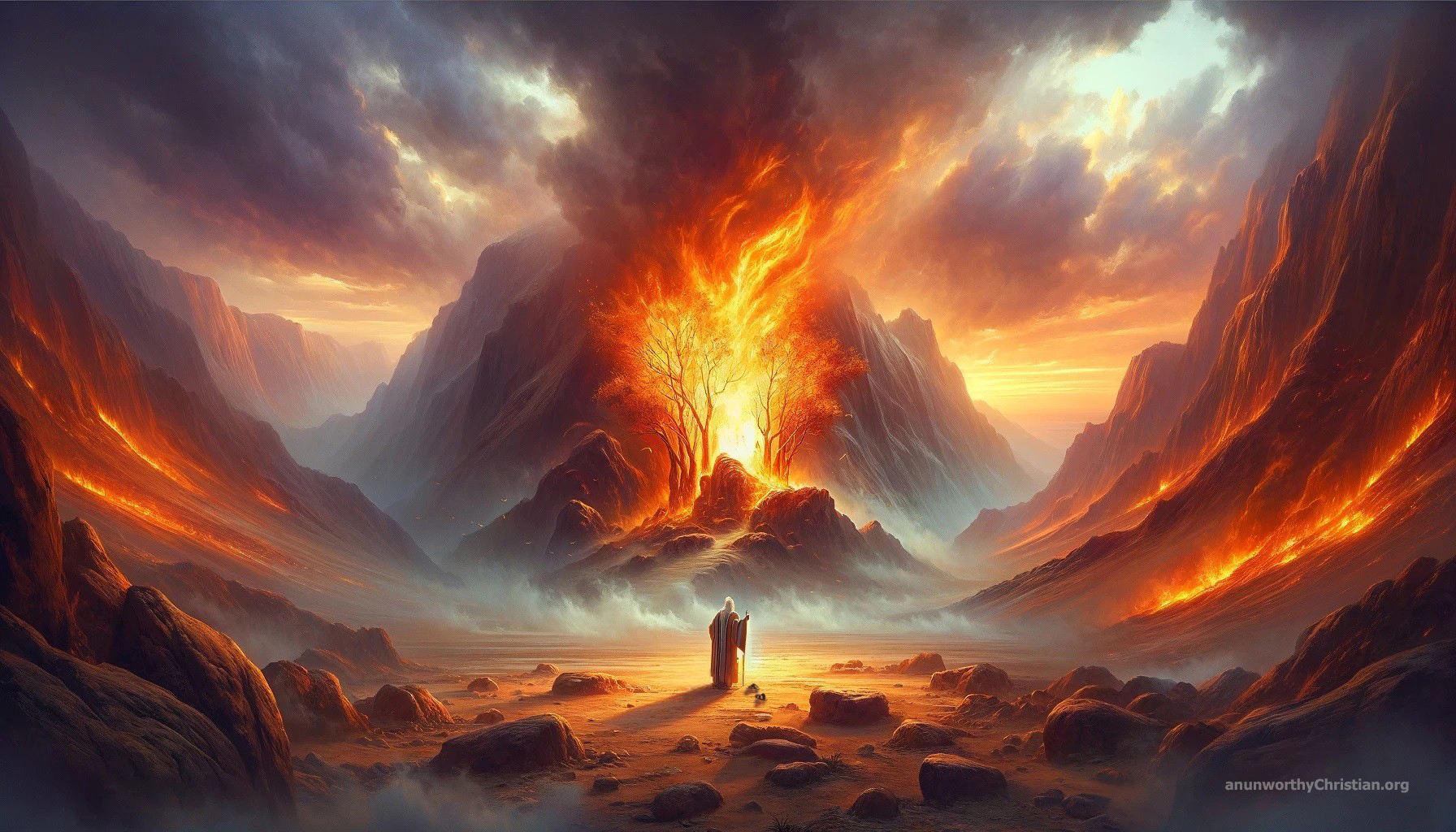The story of Moses and the Burning Bush is a significant event in the Hebrew Bible, found in the book of Exodus, chapters 3 and 4. It marks a pivotal moment in Moses' life and in the history of the Israelites. Moses was tending the flock of Jethro, his father-in-law, the priest of Midian. He led the flock to the far side of the wilderness and came to Horeb, the mountain of God. There, the angel of the Lord appeared to him in flames of fire from within a bush. Moses noticed that although the bush was on fire, it did not burn up. Curious, he decided to go closer to understand why the bush was not consumed by the fire.
As he approached, God called out to him from within the bush, "Moses, Moses!" and Moses responded, "Here I am." God then instructed Moses to not come any closer and to take off his sandals, for the place where he was standing was holy ground. God introduced Himself as the God of Abraham, the God of Isaac, and the God of Jacob. This caused Moses to hide his face, as he was afraid to look at God.
God then told Moses that He had seen the misery of His people in Egypt and heard their cries due to their slave drivers. He was aware of their suffering and had come down to rescue them from the Egyptians and to bring them out of Egypt into a good and spacious land, flowing with milk and honey—the home of the Canaanites, Hittites, Amorites, Perizzites, Hivites, and Jebusites.
Furthermore, God said that the cry of the Israelites had reached Him and that He had seen the way the Egyptians were oppressing them. Therefore, He was sending Moses to Pharaoh to bring His people, the Israelites, out of Egypt. Moses, feeling inadequate, questioned God, asking why He would send him and how he could possibly lead the Israelites out of Egypt.
God reassured Moses that He would be with him and provided him with a sign, saying that after he had brought the people out of Egypt, they would worship God on this mountain. However, Moses was concerned that the Israelites would not believe him or listen to him, so God gave him the ability to perform three signs to prove that the God of their ancestors had appeared to him: turning a staff into a snake, making his hand leprous and then healing it, and turning water from the Nile into blood.
Despite these assurances and miraculous signs, Moses remained reluctant, expressing his lack of eloquence and slow speech. God responded by promising to help him speak and teach him what to say. Yet, Moses still pleaded with God to send someone else. At this point, God's anger burned against Moses, but He agreed to send Aaron, Moses' brother, as a speaker for him, with Moses performing the signs and conveying God's commands.
This encounter at the Burning Bush not only marks the call and commissioning of Moses by God but also signifies the beginning of God's plan to deliver the Israelites from Egyptian bondage and lead them to the Promised Land. It underscores themes of divine presence, calling, faith, and deliverance, which are central to the narrative of the Exodus.

Moses and the Burning Bush
Artwork by An Unworthy Christian